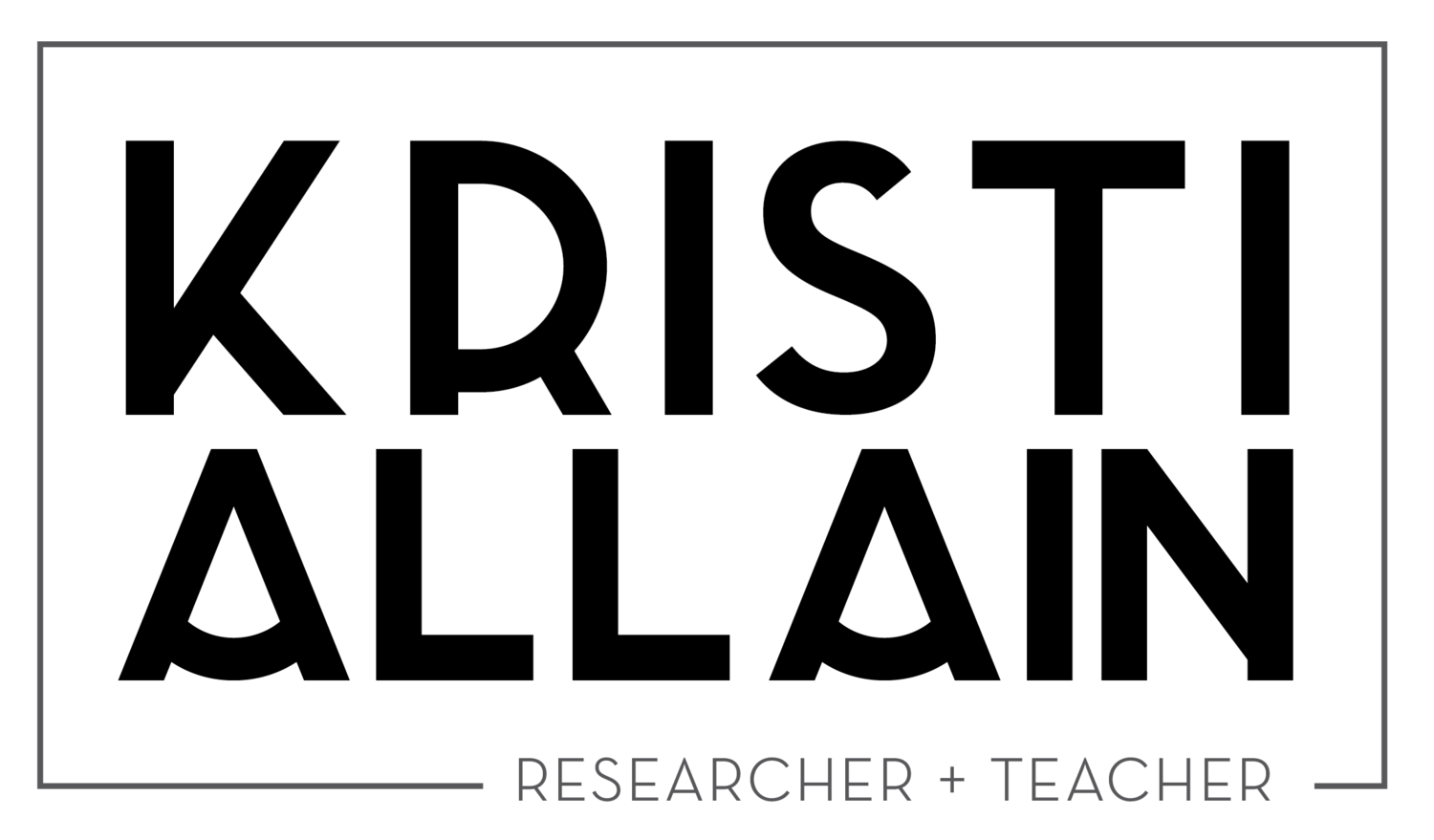. . . teaching
Teaching Philosophy
Through a dialectical process of out-of-class reflection and in-class action, Dr. Allain has developed her teaching practice so that she achieves the following:
Using course material(s) to galvanize students.
Empowering students to use the tools and skills they’ve developed in the classroom to engage critically and work towards social justice.
Supporting the most marginalized students, including those who find traditional classroom environments challenging.
Making the academic environment reflect a more just social world.
Through the process of engaging students both inside and outside the classroom and guiding them through the process of producing social change, Dr. Allain helps students think differently about their social worlds, social positions and ability to make a difference.
. . . COURSES TAUGHT REGULARLY
Introduction to Sociology
This course is about developing students’ sociological imaginations in ways that provide context and understanding when they consider how people come together to form a society and develop relationships with one another. It also considers how various social forces produce inequalities and difference. Throughout this course, students critically examine their social world, providing context for the kinds of social issues they encounter in their day-to-day lives.
Classical Sociological Theory
In this course, students closely examine the work of sociology’s canonical thinkers. Although the sociological canon has changed over time, today most sociologists would agree that the works of Karl Marx, Max Weber and Emile Durkheim are central to the discipline, its history and contemporary sociological thought. The course begins with an examination of the historical context that led to the discipline of sociology, then reviews C. W. Mill’s work on the sociological imagination. Using this text as a guide, students then study the works of the classical thinkers, considering how the sociological imaginations of Marx, Weber and Durkheim inform how these thinkers understood society, the individual, social action and social change. At the end of the course students learn about some of the more marginalized classical sociologists in an effort to illuminate the political and social frameworks that led to the development of the canon in the first place.
Sociology of Sport
Sport is an important aspect of Western culture. Engagement with sport and physical activity often begins early in one’s lives and contributes to one’s understanding of social worlds. Sport intersects many social institutions, such as the state, religion, the family and our education system. Furthermore, when people participate in sport (as spectators, workers, athletes, etc.) they learn about their identity and the identities of others, gaining social understandings of age, ability, gender, race, ethnicity, class, sexuality and nationality. Given the significance of sport in Canada, it is important that students critically examine sport and its associated practices. In this class, students disrupt common-sense understandings of sport in order to unpack the ways that sport produces particular power relations.
The Sociology of Men and Masculinities
In this course, students examine the social production of masculinities as a gendered practice in North America and the impact of these gender expressions on the lives of individuals of all genders. This course introduces students to the various theoretical perspectives used to understand the lives of men and boys. Students use these perspectives to unpack the ways men and women produce, support and challenge practices of masculinity in their daily lives. Students examine topics such as the construction of notions of masculinity, sports masculinities, and racialized masculinities.
Sociology of Communications
In this course, students examine issues associated with the Canadian media and the impact of public engagement with the media on social life. Students are encouraged to enhance their media literacy and analyze their own day-to-day engagement with the media. Throughout the course, students examine the potential role of the media in producing and enhancing Canadian democracy, community, and social change.
Honours Workshop
This course is designed as a tool to help demystify the academic research process and offer support and guidance (from both peers and faculty) to honours students. During this course, students will work on developing the skills of a professional sociologist, including the skills necessary to research and write their honours thesis. To aid in this, they discuss navigating the library, literature reviews, note-taking, annotation, organization of writing, time management, research ethics, and knowledge dissemination. The course also addresses the process of applying to graduate school and preparing a curriculum vitae/resume.

